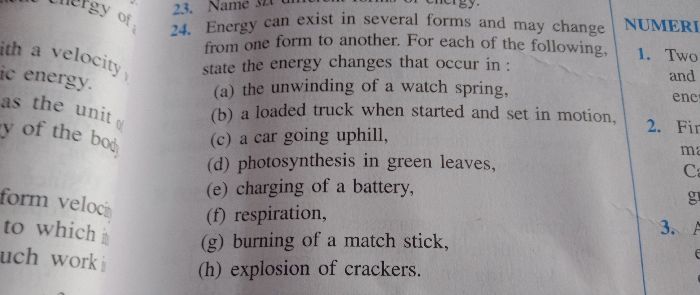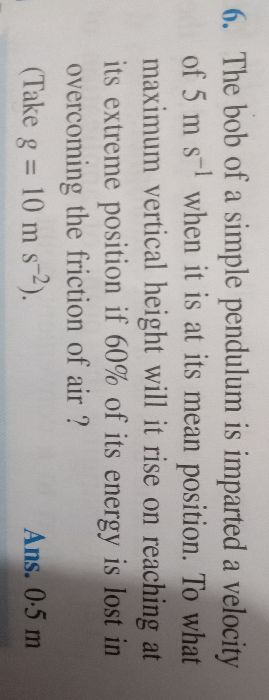ICSE Class 10 Answered
A force of 100N acts on an object of mass 10kg for 9seconds. If the object was initially moving with the speed of 10m/s, calculate the initial and final kinetic energy of the object.By what factor does the kinetic energy increase?
Asked by rajinderkaur1528 | 08 Feb, 2019, 03:28: PM
F = 100 N, m = 10 kg, t = 9 s, u = 10 m/s, Initial kinetic energy - K.E.i = ?, Final kinetic energy K.E.f = ?
u = 10 m/s,
Thus, K.E.i = 1/2 × m × u2 = 1/2 × 10 × 102 = 500 J
F = m x a
a = F/m = 100/10 = 10 m/s2
v = u + at
v = 10 + (10) x 9
v = 100 m/s
K.E.f = 1/2 × m × v2 = 50000 J
Factor by which the kinetic energy increases,

Answered by Shiwani Sawant | 08 Feb, 2019, 05:10: PM
Application Videos
Concept Videos
ICSE 10 - Physics
Asked by foodonly742 | 02 Jan, 2024, 11:06: AM
ICSE 10 - Physics
Asked by amit.clw4 | 11 Jun, 2021, 08:13: PM
ICSE 10 - Physics
Asked by nilesh.dhote74 | 30 Apr, 2020, 05:05: PM
ICSE 10 - Physics
Asked by nilesh.dhote74 | 29 Apr, 2020, 10:07: PM
ICSE 10 - Physics
Asked by nilesh.dhote74 | 29 Apr, 2020, 10:06: PM
ICSE 10 - Physics
Asked by saibaba1069 | 14 Apr, 2020, 06:25: PM
ICSE 10 - Physics
Asked by mehulibasu10 | 23 May, 2019, 11:07: PM














